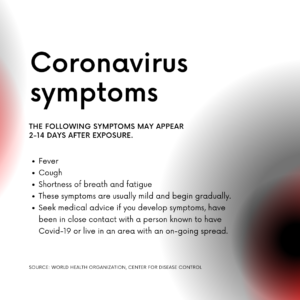Times of epidemics can lead to panic. The global outbreak of an illness can lead to many questions: What is a virus? What is caused by a virus? What is a syndrome? What is the difference between virus and syndrome? COVID-19, better known as “coronavirus”, has motivated people to take an interest in airborne illness like never before. Below are some of the most common questions pertaining to viruses such as coronavirus.
What is a Virus? What is the Definition of a Virus?
While most people are aware that things such as germs can make them sick, what is a virus that makes it special? A virus is a microscopic living organism that can only thrive in the cells of a host. They can infect all living organisms from animals to plants, as well as microorganisms such as bacteria.
For the more blatant question of what is the definition of a virus, Merriam-Webster offers the simplest answer of the causative agent of an infectious disease.
What is a Viral Infection?
Knowing what a virus is, just what is a viral infection, by comparison? The virus is just the independent living organism while the infection is when a person the virus has found a host in another living organism. The immune system is the only thing to combat a viral infection due to antibiotics only working on bacterial infections.
When an organism is infected, just what is caused by a virus? That depends on the virus, itself, and the strength of the infected person’s immune system. Some viruses max out with a head cold, some viruses can lead to respiratory issues. In healthier patients, the same virus may be mostly uncomfortable though it is fatal in more immunocompromised patients.
What is a Virus Made of? What is a Basic Characteristic of a Virus?
Trying to dissect the issues leads many to wonder what is a virus made of? They consist of a core of RNA or DNA genetic material with a protective coating of protein called a capsid. Capsids occasionally have a spikey protective coat called an envelope.
Knowing what a virus is made of, what is a basic characteristic of a virus? They are acellular, meaning that they do not have cytoplasm or organelles. They do not have a metabolism, and require this of a host’s machinery, which is how they reproduce. While they may have DNA or RNA, they do not have both.
What is a Syndrome? What is the Difference Between Virus and Syndrome?
A common word associated with diseases, but what is a syndrome, exactly? A syndrome is a combination of symptoms that, in tandem with each other, indicate a malady in the body.
A syndrome is a compilation of symptoms pertaining to an illness while a virus is the cause of illnesses and symptoms.
What are Coronavirus Signs and Symptoms?
Specific to the coronavirus, signs and symptoms are usually cough, fever, shortness of breath, and persistent pain or pressure in the chest. These typically present themselves within 2-14 days of exposure to the virus.
 COVID-19 may be able to attach to the fur of animals and use them for transportation, but it does not infect them. Coronavirus symptoms in humans are specific to our species as there are no symptoms in animals.
COVID-19 may be able to attach to the fur of animals and use them for transportation, but it does not infect them. Coronavirus symptoms in humans are specific to our species as there are no symptoms in animals.
The symptoms of coronavirus are so focused on the breathing that it has been previously treated as just a respiratory infection before the awareness spread. Regarding “what are the symptoms of coronavirus”, they are mainly fever, cough, and extreme difficulty breathing.
What Causes Coronavirus?
What causes coronavirus? What are the causes of coronavirus? As an organism, coronavirus isn’t “caused” by anything in particular. It is, however, an airborne virus, so being exposed to those carrying the virus can make it easy to spread even without contact.
However, COVID 19 is the disease caused by coronavirus that people are experiencing, at the moment.
Summary
So, what is a virus? An organism that causes disease in the host body it infects as a means of surviving and reproducing, neither of which it can do on its own. What is a syndrome? A collection of symptoms caused by a particular disease, which may be viral infection, bacterial infection, or even caused by other means. What is the Difference Between Virus and Syndrome? A virus is a cause while a syndrome is a result.
Related Content:
A Comprehensive Pandemic Kit List
Best Practices During a Pandemic
Outbreak: 10 of the Worst Pandemics in History